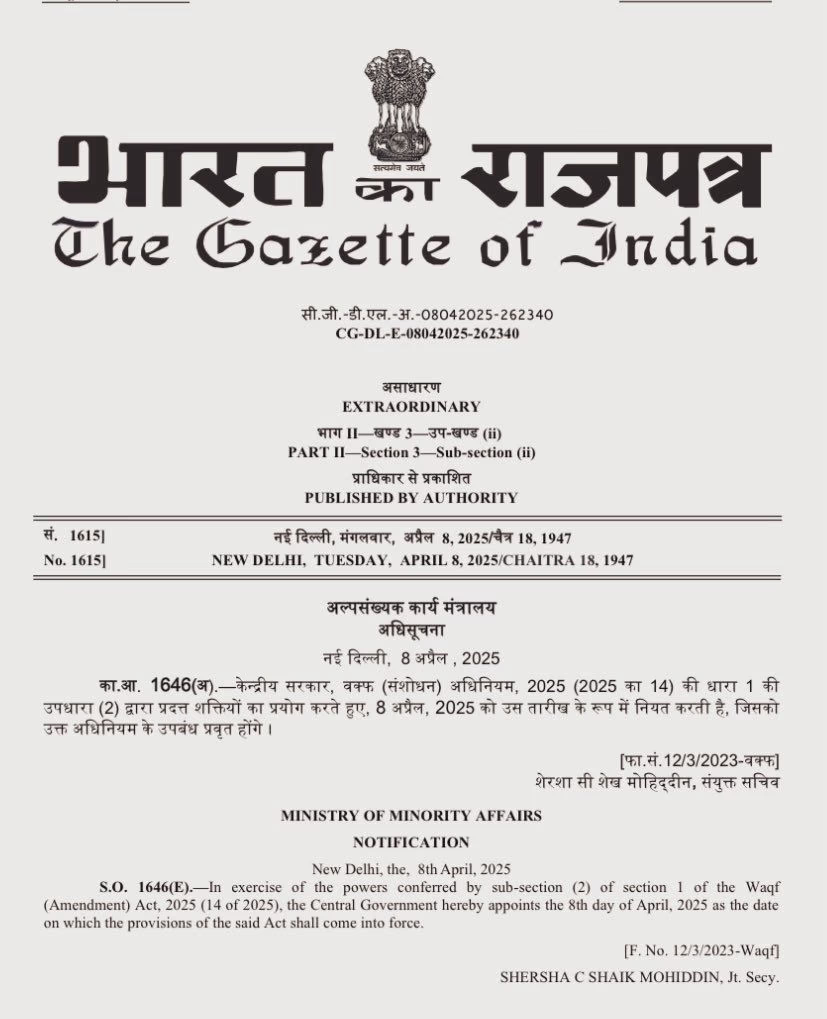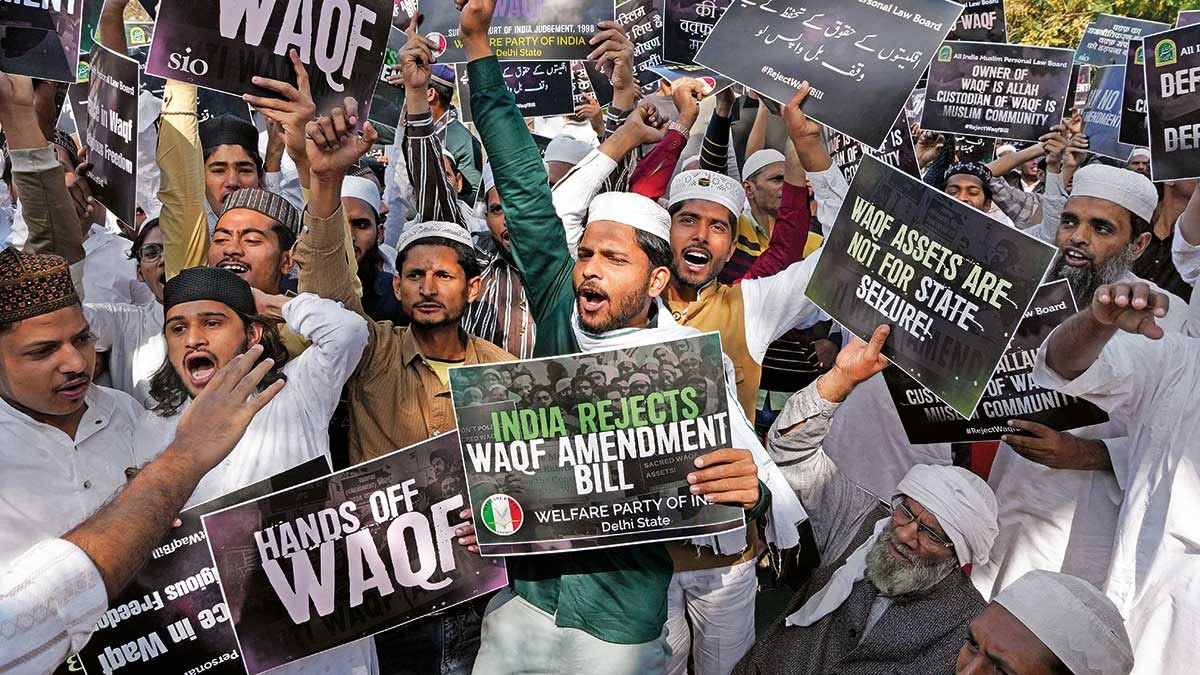The central government has officially enforced the Waqf (Amendment) Act, 2025. It swiftly came into effect after being passed by both houses of Parliament and receiving the president's approval, introducing significant reforms related to Waqf laws.
The Center has released an official notification, declaring that the Waqf (Amendment) Act, 2025 will be effective from April 8, 2025. Published in the Gazette of India, the Ministry of Minority Affairs announced that using its constitutional powers, the central government has declared April 8, 2025, as the commencement date for all provisions of the Waqf (Amendment) Act, 2025.

Source: aajtak
What's Special About the Waqf (Amendment) Act, 2025?
This amendment includes numerous provisions such as improving the functionality of Waqf boards, digitizing property records, and enforcing strict action on unauthorized occupations. It also grants the public enhanced rights to access Waqf properties' information. The government presents this as a significant step towards ensuring reform, transparency, and accountability.
However, some opposition parties and Muslim organizations have expressed concerns about the amendments potentially 'interfering with ownership rights.' They argue certain provisions might complicate challenges against privately owned properties declared as Waqf. Consequently, six petitions have been filed against these amendments in the Supreme Court.
What is Waqf Property? Waqf property is permanently donated by a Muslim for religious, charitable, or social purposes. These are administered through state Waqf boards. Presently, millions of acres fall under Waqf properties across the country, yet the income generated remains minimal, with a significant portion spent on administrative costs. Hence, for a long time, demands for improved management have been voiced.




